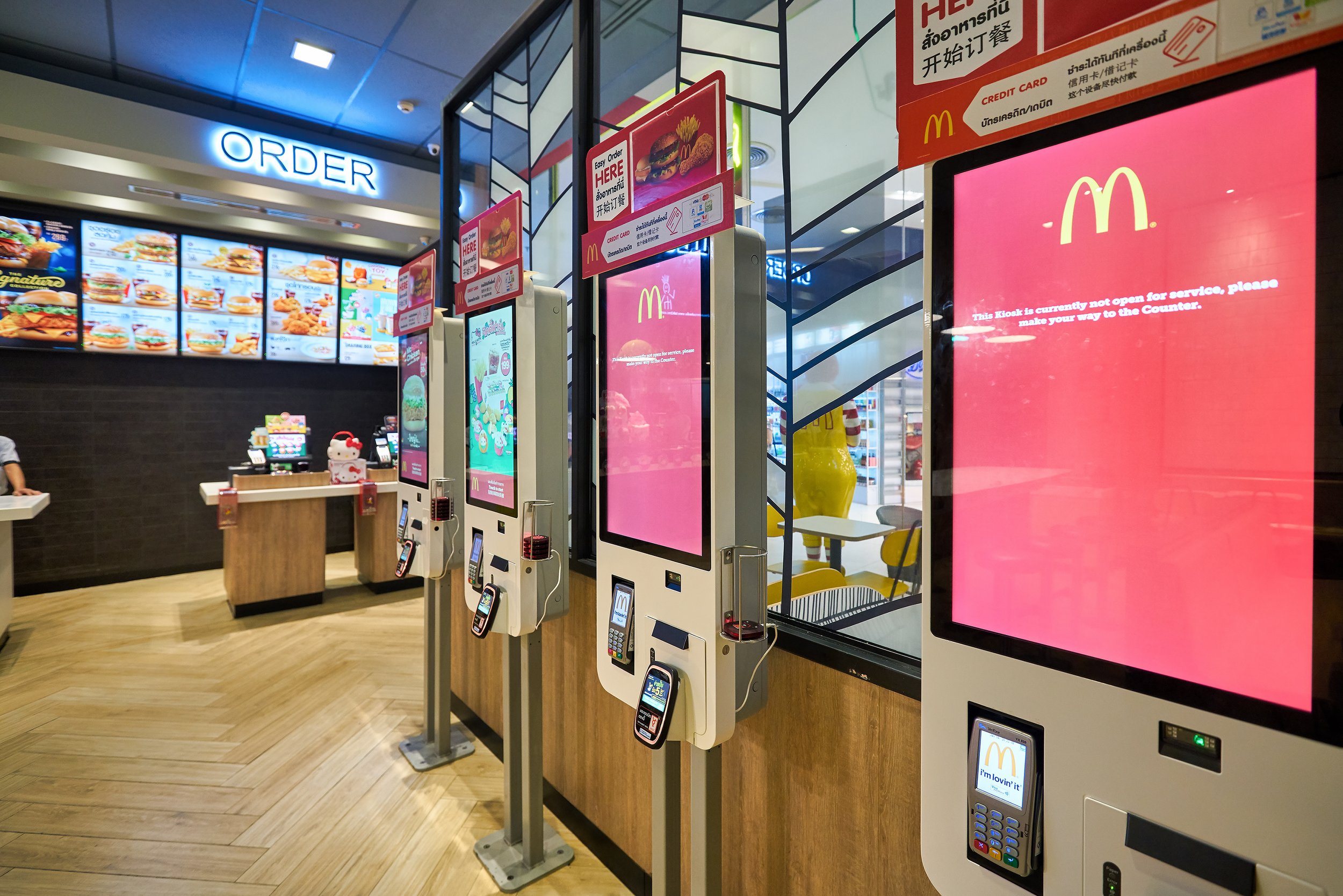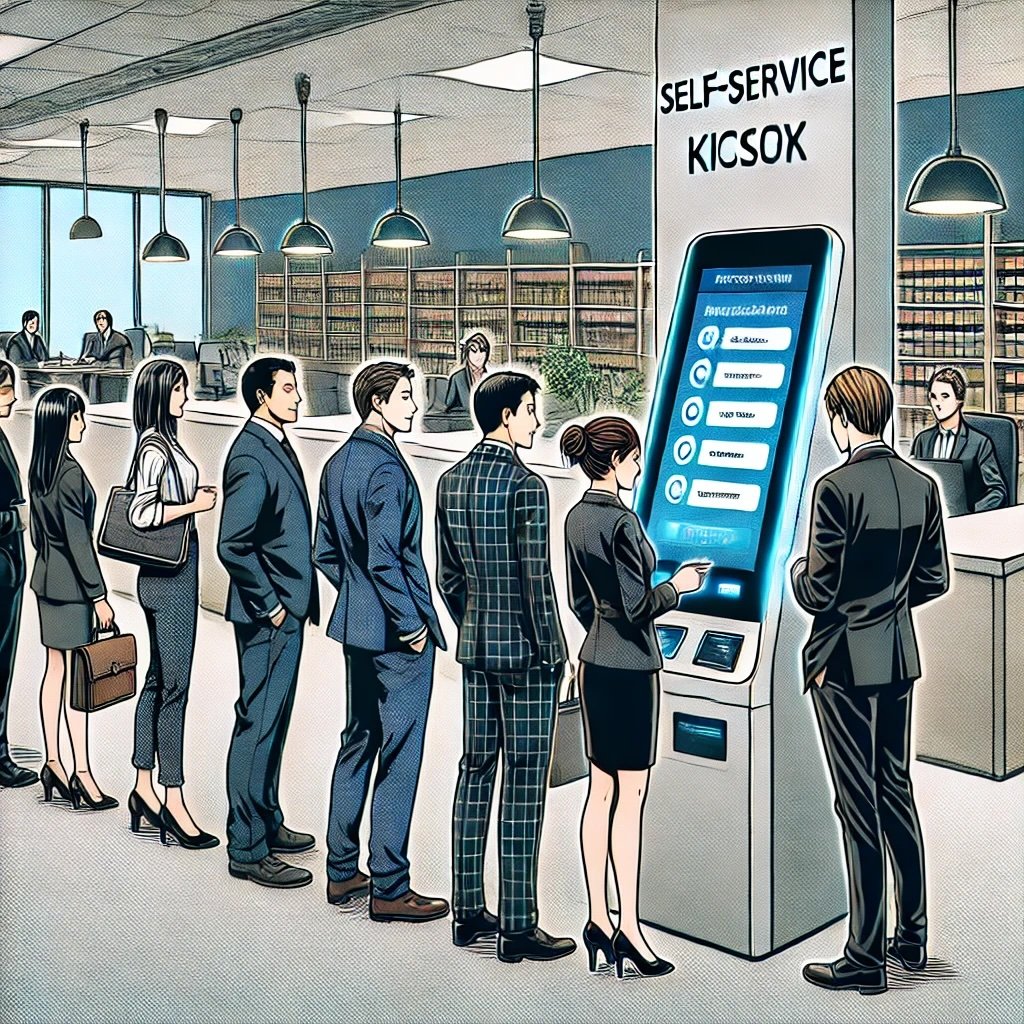MTC: From Fast Food to Fast Justice: What Lawyers Can Learn from McDonald's Kiosk Revolution?!
/What can mcdonald’s self-serve kiosks teach lawyers about autmomation and workflows
The rise of self-service kiosks at McDonald’s offers valuable lessons for the legal industry, particularly in how technology can streamline operations and enhance client service. As lawyers, we can draw parallels between these kiosks and the growing adoption of online scheduling, virtual receptionists, and secure payment portals in law practices.
McDonald's implementation of self-service kiosks has revolutionized their ordering process, reducing wait times and improving accuracy. Similarly, law firms can leverage online calendaring programs like Calendly or Acuity to streamline appointment scheduling. These tools allow clients to book consultations at their convenience, reducing the administrative burden on staff and minimizing scheduling conflicts.
Streamlining Client Interactions
Online Scheduling
Virtual receptionist services like Ruby Receptionists or Smith.ai can integrate with these calendaring systems, providing a seamless client intake process. Just as McDonald's kiosks free up staff to focus on food preparation and customer service, virtual receptionists can handle routine inquiries and scheduling, allowing lawyers and paralegals to concentrate on higher-value tasks.
Secure Payment Portals
Secure online payment portals such as LawPay mirror the efficiency of kiosk transactions. These platforms facilitate quick and secure payments, improving cash flow and reducing the time spent on billing and collections. The convenience factor for clients cannot be overstated – just as McDonald's customers appreciate the ease of kiosk ordering, legal clients value the ability to pay fees promptly and securely online.
Enhancing Client Data Collection
Some frontline automation can help potential clients and lawyers ensure Pcs find the right lawyer saving everyone valuable time and help prevent aGgravation.
The screening and data-gathering capabilities of online scheduling tools are akin to the customization options on fast-food kiosks. These features allow lawyers to collect essential information from potential clients before the initial consultation. This pre-consultation data gathering typically includes names, addresses, personal identification information, type of legal issue, and relevant details. By obtaining this information in advance, lawyers can ensure that the client's legal issue falls within their practice area(s). This proactive approach leads to more productive meetings and efficient case evaluations, ultimately streamlining the legal consultation process.
Integrated Workflow Systems
Integration of these technologies with law practice management software like Clio or Filevine creates a comprehensive workflow system. This integration allows for seamless data transfer between client intake, scheduling, case management, and billing – much like how McDonald's kiosks connect ordering, payment, and food preparation systems.
Shifting Staff Resources
The screening and data-gathering capabilities of online scheduling tools are akin to the customization options on fast-food kiosks. These features allow lawyers to collect essential information from potential clients before the initial consultation, including names, addresses, personal identification information, type of legal issue, and relevant details. By obtaining this information in advance, lawyers can ensure that the client's legal issue falls within their practice area(s). This proactive approach not only leads to more productive meetings and efficient case evaluations but also allows law firms to shift staff resources away from menial administrative tasks. Instead, staff can focus on more substantive work, such as case research, document preparation, and client support, thereby improving overall productivity and service quality.
Potential Pitfalls
impersonal automation can be off putting to some potential clients
However, as we embrace these technologies, we must remain mindful of potential pitfalls. The impersonal nature of kiosks has faced criticism in the fast-food industry, and lawyers must ensure that technology enhances rather than replaces the personal touch that is crucial in attorney-client relationships. Additionally, we must be vigilant about data security and ethical compliance, ensuring that our tech solutions meet the stringent requirements of legal practice.
Final Thoughts
The McDonald's kiosk revolution offers a compelling case study for the legal industry. By thoughtfully implementing similar technologies, lawyers can create more efficient practices, reduce overhead, and ultimately provide better service to their clients. The key lies in striking the right balance between technological efficiency and the personal, trust-based relationships that are the cornerstone of legal practice.
MTC










